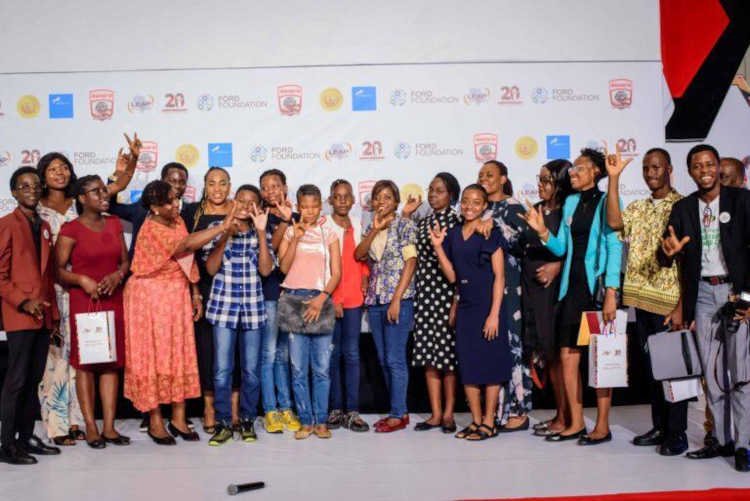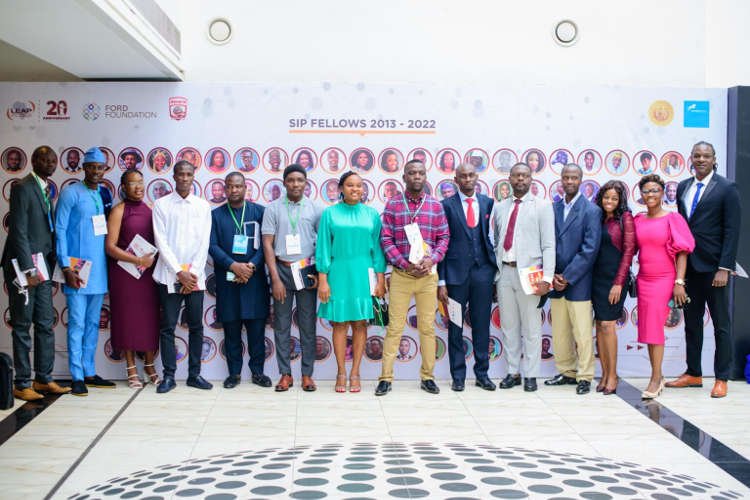At a time when many young innovators in Africa are struggling to scale, Leadership, Effectiveness, Accountability, and Professionalism (LEAP) Africa has proven that opportunities for the continent’s innovators are not all lost.
Development Diaries reports that the youth-focused nonprofit recently marked ten years of empowering young changemakers in Africa with the requisite skills and resources for establishing long-term social enterprises.
It is understood that of the approximately 420 million young people in Africa between the ages of 15 and 35, one-third are jobless or do not have the required skills to manage social enterprises. In fact, another third work in vulnerable jobs, and just one in six are employed for pay, according to the African Development Bank (AfDB).
The high unemployment rate among young people in the continent has left a considerable portion of its potential labour force without opportunities for growth and prosperity.
According to the International Labour Organisation (ILO), Africa had an estimated 7.1 percent unemployment rate in 2022, and the prevailing economic structures in many African countries often fail to create enough job opportunities to absorb the growing youth population.
One solution to this problem is encouraging entrepreneurship through financial support, mentorship, and creating a conducive business environment that can empower young people to create their own opportunities through social innovations.
Social innovation in Africa
As they aim to meet social needs in a better way than existing solutions, many social innovators in Africa are struggling to scale. Industry observers have noted that young innovators experience hurdles trying to replicate their initiatives and sustain their ideas due to insufficient funding.
LEAP Africa created the Social Innovators Programme (SIP) in 2013 to strengthen and advance youth-led innovation and entrepreneurship in Africa through training and collaborative partnerships that enhance the sustainability of the overall impact of social ventures.

SIP, it is understood, is an eight-month accelerator programme that equips young entrepreneurs with the requisite skills to build sustainable enterprises. At the end of the accelerator programme, an award ceremony, SIPA, is held to showcase the organisation’s changemakers and the incredible innovations they are using to solve problems within their respective communities.
‘Now in its tenth year, LEAP Africa has supported over 279 social innovators across Nigeria, Ghana, Kenya, Sierra Leone, Rwanda, Cameroon, Burundi, Uganda, and Tanzania with skills, mentorship, funding and network to scale their social enterprises’, LEAP Africa Executive Director, Kehinde Ayeni, said.
‘Looking back, I would not have dreamt that I would be here [a thriving innovator] today; we are on our own property, and we are expanding the facility’, said Seun Sangoloye, the innovator of a baby formula product – Baby Grubz.
Another beneficiary of SIP and Cofounder of Recycle Points, Chioma Ukonu, said the programme has been fulfilling and rewarding.
‘We have won both local and international accolades and awards for this; people have been impacted, communities have been cleaned up, households have been feeding off recycling their waste, so it has been very fulfilling’, she said.
According to the organisation, in the last five years, SIP fellows’ social enterprises have employed over 400
people across Africa, with 97 percent of the ventures formally registered and a board of directors instituted.
Although LEAP Africa has achieved remarkable feats with this programme, it has not been smooth sailing.
Resource constraints, other challenges
‘Limited funding and resources have posed challenges in scaling up the programme and reaching a broader more pan-African audience’, the organisation told Development Diaries.
‘Developing a rigorous yet inclusive selection process for identifying potential social innovators has been an ongoing effort. Striking the right balance between thorough evaluation and accessibility has proven challenging’, it said.
‘Ensuring the long-term sustainability of the projects initiated by social innovators has been a challenge. Some projects may face difficulties in maintaining impact after the training’.
Indeed, LEAP Africa and other non-governmental organisations (NGOs) in Africa cannot respond to the challenges associated with social innovation in the continent alone. The challenges require a comprehensive approach that involves collaboration between governments, critical stakeholders like NGOs, educational institutions, and the private sector.
Addressing challenges
African governments need to take the lead through their various youth and social inclusion ministries. They should work closely with relevant NGOs in designing programmes, like LEAP Africa’s SIP, and projects that aim to boost inclusive and economic opportunities for young people.
We also encourage more donor organisations to identify and provide these NGOs with funding to reach a larger pan-African audience.
In addition, governments can incentivise private sector involvement in skill development programmes by offering tax breaks or other incentives to businesses that contribute to training and upskilling initiatives.
Furthermore, targeted investment in vocational training programmes is crucial to equipping young people with the practical skills needed for various industries. Government’s establishment of vocational training centres in partnership with NGOs can provide hands-on training in fields with high demand for skilled workers.
Therefore, African governments (including Nigeria, Ghana, Kenya, Sierra Leone, Rwanda, Cameroon, Burundi, Uganda, and Tanzania) working with development partners, must foster an environment conducive to entrepreneurship by streamlining bureaucratic processes, offering financial support, and creating mentorship programmes for aspiring entrepreneurs. It is doable.
Photo source: LEAP Africa







